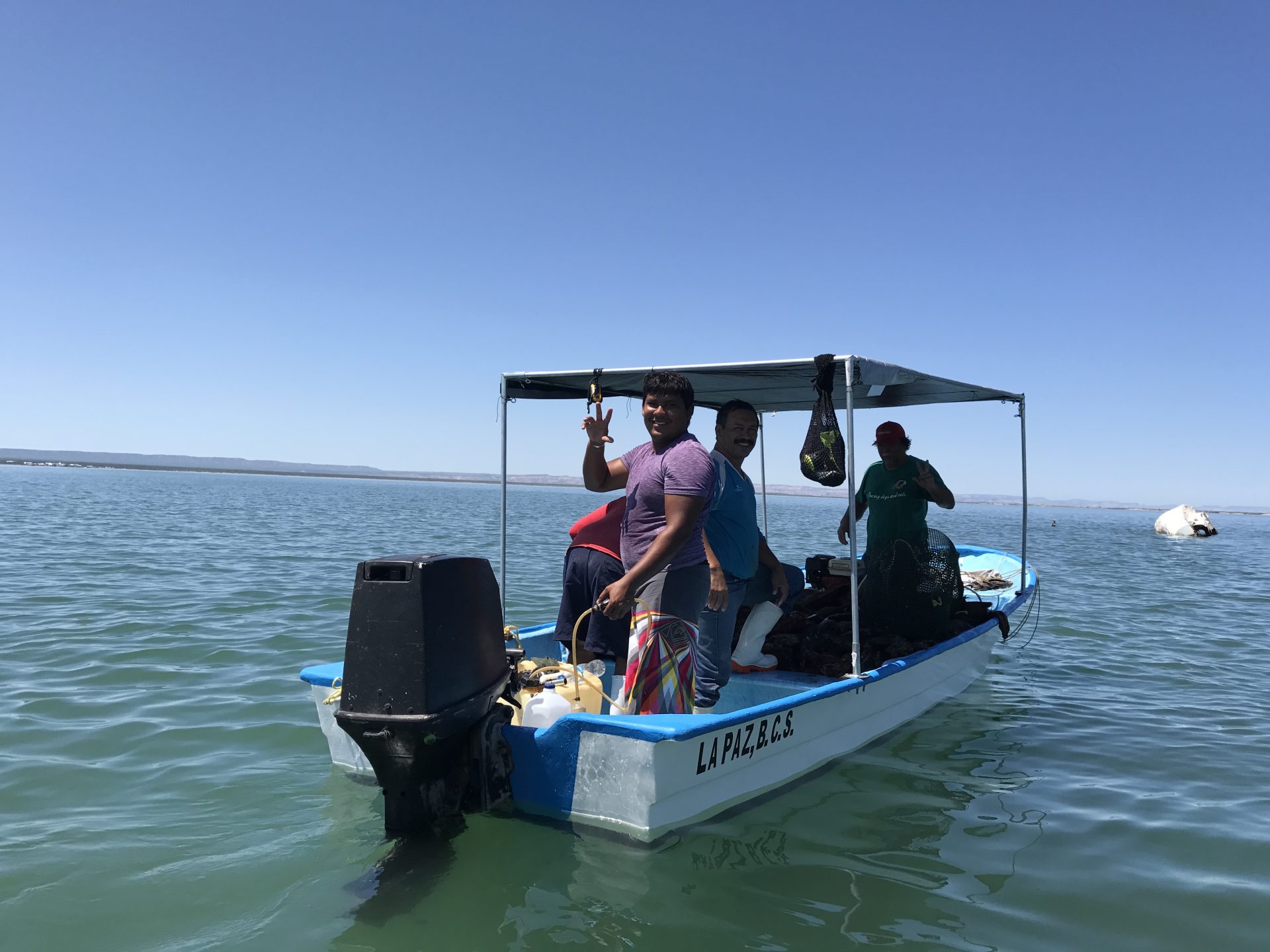The Challenges of Success
After five years of a self-imposed ban on fishing, which began in 2012, NOS and the Manglito community now face the many challenges of a commercially viable fishery. While exciting and a validation of all their work over the past decade, this re-opening of the Callo de Hacha penshell clam fishery raises many questions for the community as it enters a new phase of its evolution:
- What volume of Callo de Hacha clams will be harvested once the concession is granted? The government authority INAPESCA will ultimately determine this rate, and NOS is working closely with them while facing the many dilemmas involved. From a scientific standpoint, the harvest rate should be kept low to maximize the regeneration rate of the Callo de Hacha population. But this increases the financial shortfall for OPRE, raising the prospect of having to finance that shortfall. The residents of El Manglito have a very strong aversion to debt, the by-product of lives victimized by usurious lending practices, a universal plight of the poor in developing countries. But harvesting at a higher rate means the Callo de Hacha regeneration rate will be slowed, and the resultantly smaller stock could be jeopardized by natural disasters like hurricanes and invasive species such as the tunicate fungus.

There will inevitably be conflict within the community over decisions like this. How long will it take for OPRE to become autonomous financially? What mix of commercial investment and philanthropic donations will be best in the next few years? How can OPRE manage these conflicts in ways that strengthen its role as a voice for the community as a whole so that it does not become divided by conflicting interests?
- With money, inevitably, will come new power dynamics. Will OPRE be able to hold to its social and environmental mission, or be split by old divisions within the El Manglito community as they face the dilemma of higher income in the short term versus slowing down and hopefully earning larger incomes in the long term?
- To help navigate the complex issues around prospective commercial viability, NOS has helped establish a new organization, ACHAMAR, a for-profit restoration organization working with OPRE on improving production and market access. NOS’s aim is for ACHAMAR to help OPRE with strategic, marketing, and financing decisions, enabling OPRE to focus entirely on its catch, its community, and its fishery restoration projects. NOS staff member and Academy for Systems Change Fellow Alejandro (Aleks) Flores is taking a lead in setting up this new organization.
In particular, the hope is for ACHAMAR to help OPRE cover their operating costs for the next three years, and fish only the amount that will ensure the long-term sustainability of the fishery. But ACHAMAR is very new, and OPRE and ACHAMAR staff members need to build confidence in one another so the fear of debt can be “transformed into a shared risk and a shared vision of opportunity for both,” says NOS co-director Liliana Gutiérrez Mariscal. For NOS co-founder Alejandro Robles, ACHAMAR represents one of the “new structures that can enable replication,” thereby disseminating the systemic change insights from the past ten years throughout the larger community.
In March of 2017, a team from the Academy for Systems Change, including Peter Senge and Nathan Senge, sat for three days with the core NOS/OPRE/ACHAMAR [together equalling the new virtual organization, ‘NOA’] teams exploring these new challenges. While much is uncertain, this much was evident: the community and trust building process will now enter a new phase, and capacity building must now extend further as potential new partners becoming engaged.
How will OPRE and ACHAMAR find the right types of investors for this next stage? Commercial viability opens the possibility for attracting investors, but there are many types of investors, including ones driven by short-term profit who could make life for this fragile new cooperative difficult. How can NOS, OPRE, and ACHAMAR work together to attract investors who genuinely care about the social enterprise nature of this work, and who hold a more comprehensive perspective on growing the Manglito community and ensuring its long-term financial well-being?
What are NOS’s next steps? While it is important to help others build on and expand what has been learned into new settings, NOS has played an important role in supporting the emergence of OPRE, and it cannot separate too hastily. As one of OPRE’s leaders put it in the March of 2017 meeting, “The ‘child’ needs a few more steps to be free forever from the parent.”
How soon does NOS reach out to begin similar processes in other fishing communities? On what sort of communities does its staff focus? What lessons learned from the past 10 years can guide their efforts, such as clarifying criteria of community readiness to increase odds of success? What organizational structures—for instance, a finance wing like ACHAMAR—need to be developed to support this process?
El Manglito also faces a range of challenges beyond just restoring the fishery, such as the growing drug and crime epidemics gradually intensifying in Baja California Sur. NOS has been an important partner in the community’s development for the past many years. Can it continue to play a role in its partnership with OPRE in facing these new issues in the coming years?
